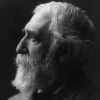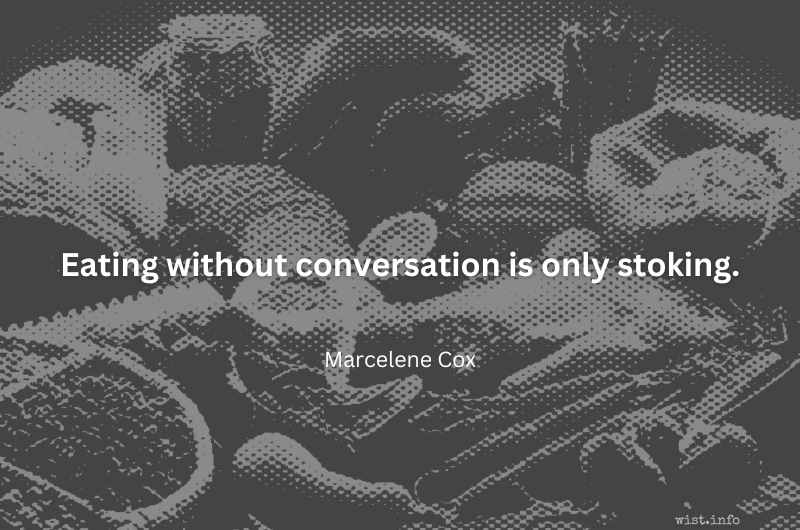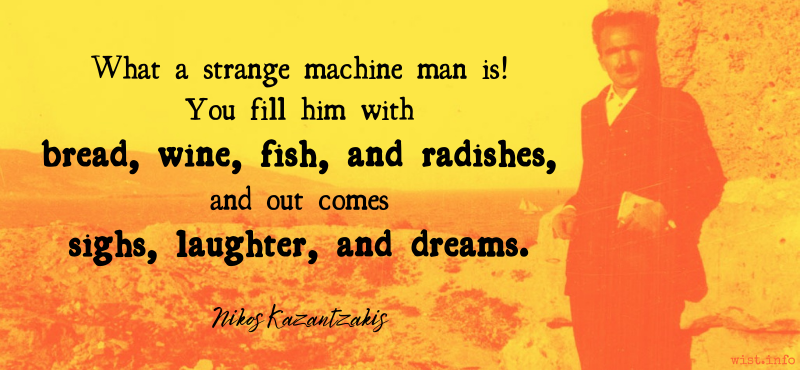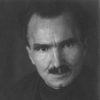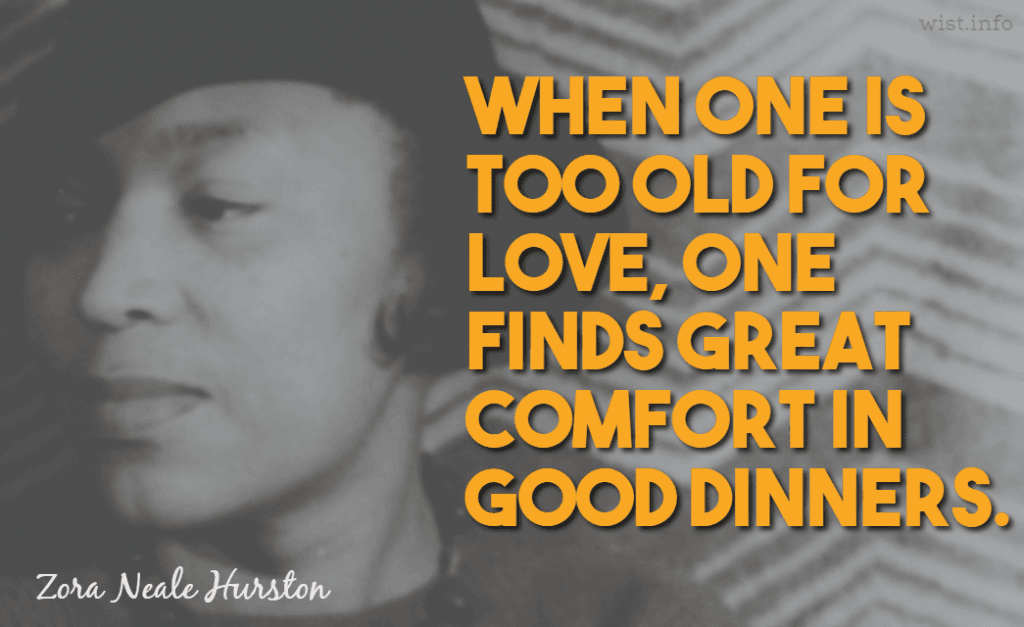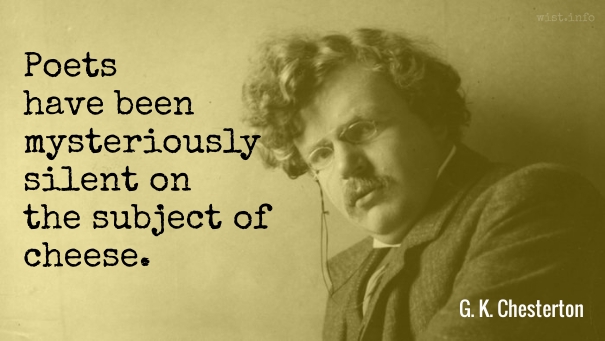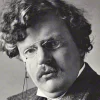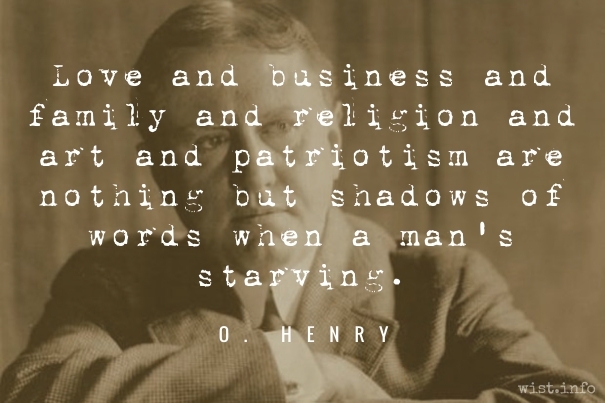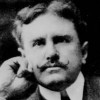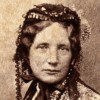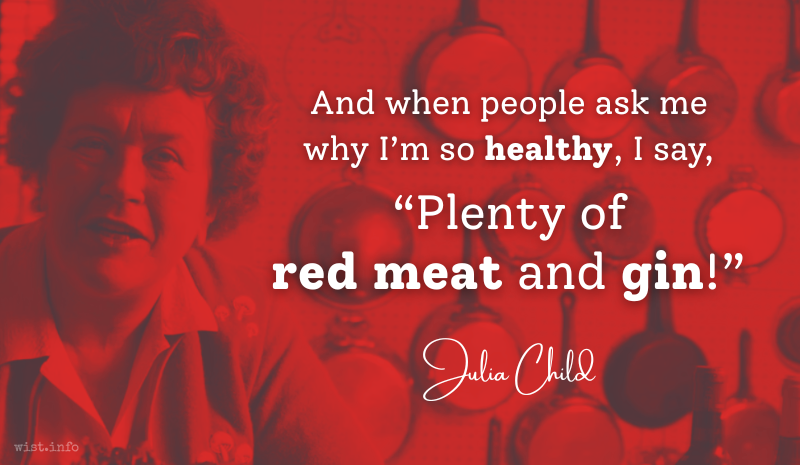Do you have a kinder, more adaptable friend in the food world than soup? Who soothes you when you are ill? Who refuses to leave you when you are impoverished and stretches its resources to give a hearty sustenance and cheer? Who warms you in the winter and cools you in the summer? Yet who also is capable of doing honor to your richest table and impressing your most demanding guests? […]
Soup does its loyal best, no matter what undignified conditions are imposed upon it. But soup knows the difference. Soup is sensitive. You don’t catch steak hanging around when you’re poor and sick, do you? Soup deserves to be treated well.Judith Martin (b. 1938) American author, journalist, etiquette expert [a.k.a. Miss Manners]
Miss Manners’ Guide to Excruciatingly Correct Behavior, Part 3 “Basic Civilization,” “Table Manners” (1983)
(Source)
Included in the 2005 edition.
Quotations about:
food
Note not all quotations have been tagged, so Search may find additional quotes on this topic.
TURKEY, n. A large bird whose flesh when eaten on certain religious anniversaries has the peculiar property of attesting piety and gratitude. Incidentally, it is pretty good eating.
Ambrose Bierce (1842-1914?) American writer and journalist
“Turkey,” The Devil’s Dictionary (1911)
(Source)
Originally published in The Devil's Dictionary [A-Z] as Vol. 7 of his Collected Works.
CHRYSALE: As for me, I’d prefer that, while peeling the veggies,
She misaligns a few subjects and verbs,
And repeats fifty times a low and vulgar word,
Than that she burns my meat or over-salts my stew.
I live on good soup, not on fine language.[J’aime bien mieux, pour moi, qu’en épluchant ses herbes,
Elle accommode mal les noms avec les verbes,
Et redise cent fois un bas ou méchant mot,
Que de brûler ma viande ou saler trop mon pot.
Je vis de bonne soupe, et non de beau langage.]Molière (1622-1673) French playwright, actor [stage name for Jean-Baptiste Poquelin]
Les Femmes Savantes [The Learned Ladies], Act 2, sc. 7, (1692) [tr. Marks (2018)]
(Source)
(Source (French)). Other translations:For my part, I had much rather that she join'd the Nouns and Verbs falsely, and repeated a servile bad Word a hundred times in picking her Herbs, than have her burn my Meat or oversalt my Broth. I live by good Soup, and not by fine Language.
[tr. Clitandre (1739)]I would rather, I would, that in cleaning the vegetables she should make the verbs agree ill with the nouns, and say a hundred times a low or bad word, than that she should burn my meat or put too much salt in my soup; I live on good soup;, and not on fine language.
[tr. Van Laun (1876)]I had much rather that while picking her herbs, she should join wrongly the nouns to the verbs, and repeat a hundred times a coarse or vulgar word, than that she should burn my roast, or put too much salt in my broth. I live on good soup, and not on fine language.
[tr. Wall (1879), The Learned Women]For my part, I had much rather that in picking her herbs she made the nouns and the verbs agree wrongly and repeated some outrageous word a hundred times, than have her burn my meat or oversalt my broth. I live by good soup, and not by fine language.
[tr. Matthew (1890), The Blue-Stockings]For my part, I'd rather she would make a mess of nouns and verbs, or use a low and vulgar word a dozen times a day, than burn my meat and oversalt my soup. Good food is what I live on, not fine language.
[tr. Wormeley (1895), The Female Pedants]Truly, I would much rather she failed to make her nouns agree with her verbs while washing her vegetables, and indulged in low or bad words a hundred times over, than burn my meat or oversalt my soup. I live by good soup, and not on fine language.
[tr. Waller (1903)]I'd rather have her, while she cleans her salad,
Make verbs and subjects disagree, and say
Some low or vulgar word a hundred times,
Than burn my roast or over-salt my broth.
I live on well-cooked food, and not fine language.
[tr. Page (1908)]For my part, I would rather that, while peeling her vegetables, she makes her verbs agree badly with her nouns and repeats a hundred times a low or bad word, than that she burns my meat or puts too much salt into my soup. I live by good soup and not by beautiful language.
[tr. Waldinger (1967)]If she makes a tasty salad, it seems to me
Her subjects and her verbs need not agree.
Let all her talk be barbarous, if she’ll not
Burn up my beef or over-salt the pot.
It’s food, not language, that I’m nourished by.
[tr. Wilbur (1977)]Her crudités for salad were sublime,
So if her verbal crudité's a crime
She has atoned for it in her cuisine.
Her language and her legumes may be green
But when my appetite rears up its voice,
The latter, not the former is its choice.
[tr. Thomas (2005 ed.)]
In the queerest way, pleasure and disgust are linked together. The human body is beautiful: it is also repulsive and ridiculous, a fact which can be verified at any swimming pool. The sexual organs are objects of desire and also of loathing, so much so that in many languages, if not in all languages, their names are used as words of abuse. Meat is delicious, but a butcher’s shop makes one feel sick: and indeed all our food springs ultimately from dung and dead bodies, the two things which of all others seem to us the most horrible. A child, when it is past the infantile stage but still looking at the world with fresh eyes, is moved by horror almost as often as by wonder — horror of snot and spittle, of the dogs’ excrement on the pavement, the dying toad full of maggots, the sweaty smell of grown-ups, the hideousness of old men, with their bald heads and bulbous noses.
In his endless harping on disease, dirt and deformity, Swift is not actually inventing anything, he is merely leaving something out.George Orwell (1903-1950) English journalist, essayist, writer [pseud. of Eric Arthur Blair]
Essay (1946-09), “Politics vs. Literature: An Examination of Gulliver’s Travels,” Polemic, No. 5
(Source)
You sleep, gaping,
On your bags of gold, adore them like hallowed
Relics not meant to be touched, stare as at gorgeous
Canvases. Money is meant to be spent, it buys pleasure:
Did you know that? Bread, vegetables, wine, you can
Buy almost everything it’s hard to live without.[Congestis undique saccis
indormis inhians et tamquam parcere sacris
cogeris aut pictis tamquam gaudere tabellis.
Nescis, quo valeat nummus, quem praebeat usum?
Panis ematur, holus, vini sextarius, adde
quis humana sibi doleat natura negatis.]Horace (65–8 BC) Roman poet, satirist, soldier, politician [Quintus Horatius Flaccus]
Satires [Saturae, Sermones], Book 1, # 1, “Qui fit, Mæcenas,” l. 70ff (1.1.70-75) (35 BC) [tr. Raffel (1983)]
(Source)
(Source (Latin)). Alternate translations:Thy house, the hell, thy good, the flood, which, thoughe it doe not starte,
Nor stirre from thee, yet hath it so in houlde thy servyle hearte,
That though in foysonne full thou swimmes, and rattles in thy bagges,
Yet tost thou arte with dreadefulle dreames, thy mynde it waves and wagges,
And wisheth after greater things, and that, thats woorste of all,
Thou sparst it as an hollye thynge, and doste thy selfe in thralle
Unto thy lowte, and cockescome lyke thou doste but fille thine eye
With that, which shoulde thy porte preserve, and hoyste thyne honor hye.
Thou scannes it, and thou toots upponte, as thoughe it were a warke
By practysde painters hande portrayde with shaddowes suttle darke.
Is this the perfytte ende of coyne? be these the veray vayles
That money hath, to serve thy syghte? fye, fye thy wysedome fayles.
Tharte misse insenste, thou canst not use't, thou wotes not what to do
Withall, by cates, bye breade, bye drincke, in fyne disburse it so,
That nature neede not move her selfe, nor with a betments scant
Distrainte, and prickd passe forth her daye in pyne and pinchinge want.
[tr. Drant (1567)]Thee,
Who on thy full cramb'd Bags together laid,
Do'st lay thy sleepless and affrighted head;
And do'st no more the moderate use on't dare
To make, then if it consicrated were:
Thou mak'st no other use of all thy gold,
Then men do of their pictures, to behold.
Do'st thou not know the use and power of coyn?
It buys bread, meat, and cloaths, (and what's more wine;)
With all those necessary things beside,
Without which Nature cannot be suppli'd.
[tr. A. B.; ed. Brome (1666)]Thou watchest o'er thy heaps, yet 'midst thy store
Thou'rt almost starv'd for Want, and still art poor:
You fear to touch as if You rob'd a Saint,
And use no more than if 'twere Gold in paint:
You only know how Wealth may be abus'd,
Not what 'tis good for, how it can be us'd;
'Twill buy Thee Bread, 'twill buy Thee Herbs, and
What ever Nature's Luxury can grant.
[tr. Creech (1684)]Of thee the tale is told,
With open mouth when dozing o'er your gold.
On every side the numerous bags are pil'd,
Whose hallow'd stores must never be defil'd
To human use ; while you transported gaze,
As if, like pictures, they were form'd to please.
Would you the real use of riches know?
Bread, herbs, and wine are all they can bestow:
Or add, what nature's deepest wants supplies;
This, and no more, thy mass of money buys.
[tr. Francis (1747)]O'er countless heaps in nicest order stored
You pore agape, and gaze upon the hoard,
As relicks to be laid with reverence by,
Or pictures only meant to please the eye.
With all your cash, you seem not yet to know
Its proper use, or what it can bestow!
"'Twill buy me herbs, a loaf, a pint of wine, --
All, which denied her, nature would repine."
[tr. Howes (1845)]You sleep upon your bags, heaped up on every side, gaping over them, and are obliged to abstain from them, as if they were consecrated things, or to amuse yourself with them as you would with pictures. Are you ignorant of what value money has, what use it can afford? Bread, herbs, a bottle of wine may be purchased; to which [necessaries], add [such others], as, being withheld, human nature would be uneasy with itself.
[tr. Smart/Buckley (1853)]You sleepless gloat o'er bags of money gained from every source, and yet you're forced to touch them not as though tabooed, or else you feel but such delight in them as painting gives the sense. Pray don't you know the good of money to you, or the use it is? You may buy bread and herbs, your pint of wine, and more, all else, which if our nature lacked, it would feel pain.
[tr. Millington (1870)]Of you the tale is told:
You sleep, mouth open, on your hoarded gold;
Gold that you treat as sacred, dare not use,
In fact, that charms you as a picture does.
Come, will you hear what wealth can fairly do?
'Twill buy you bread, and vegetables too,
And wine, a good pint measure: add to this
Such needful things as flesh and blood would miss.
[tr. Conington (1874)]You sleep with open mouth on money-bags piled up from all sides, and must perforce keep hands off as if they were hallowed, or take delight in them as if painted pictures. Don't you know what money is for, what end it serves? You may buy bread, greens, a measure of wine, and such other things as would mean pain to our human nature, if withheld.
[tr. Fairclough (Loeb) (1926)]You sleep on the sacks
Of money you've scraped up and raked in from everywhere
And, gazing with greed, are still forced to keep your hands off,
As if they were sacred or simply pictures to look at.
Don't you know what money can do, or just why we want it?
It's to buy bread and greens and a pint of wine
And the things that we, being human, can't do without.
[tr. Palmer Bovie (1959)]You have money bags amassed from everywhere,
just to sleep and gasp upon. To you they're sacred,
or they're works of art, to be enjoyed only with the eyes.
Don't you know the value of money, what it's used for?
It buys bread, vegetables, a pint of wine and whatever else
a human being needs to survive and not to suffer.
[tr. Fuchs (1977)]You sleep with open mouth
on sacks accumulated from everywhere
and are constrained to worship them as sacred things,
or rejoice in them as if they were painted tablets.
Do you not know what money serves for?
How it's to be used? to buy bread, vegetables,
a sixth of wine, other things deprived of which
human nature suffers.
[tr. Alexander (1999)]You sleep open-mouthed on a mound of money
bags but won't touch them; you just stare at them
as if they were a collection of paintings.
What's money for? What can it do? Why not
buy bread, vegetables, what you think's wine enough?
Don't you want what it harms us not to have?
[tr. Matthews (2002)]You scrape your money-bags together and fall asleep
on top of them with your mouth agape. They must remain unused
like sacred objects, giving no more pleasure than if painted on canvas.
Do you not realize what money is for, what enjoyment it gives?
You can buy bread and vegetables, half a litre of wine,
and the other things which human life can't do without.
[tr. Rudd (2005 ed.)]... covetously sleeping on money-bags
Piled around, forced to protect them like sacred objects,
And take pleasure in them as if they were only paintings.
Don’t you know the value of money, what end it serves?
Buy bread with it, cabbages, a pint of wine: all the rest,
Things where denying them us harms our essential nature.
[tr. Kline (2015)]
In the future days, which we seek to make secure, we look forward to a world founded upon four essential human freedoms.
The first is freedom of speech and expression — everywhere in the world.
The second is freedom of every person to worship God in his own way — everywhere in the world.
The third is freedom from want — which, translated into world terms, means economic understandings which will secure to every nation a healthy peacetime life for its inhabitants — everywhere in the world.
The fourth is freedom from fear — which, translated into world terms, means a world-wide reduction of armaments to such a point and in such a thorough fashion that no nation will be in a position to commit an act of physical aggression against any neighbor — anywhere in the world.
That is no vision of a distant millennium. It is a definite basis for a kind of world attainable in our own time and generation. That kind of world is the very antithesis of the so-called new order of tyranny which the dictators seek to create with the crash of a bomb.Franklin Delano Roosevelt (1882–1945) American lawyer, politician, statesman, US President (1933–1945)
Speech (1941-01-06) to Congress, Annual Message (State of the Union), “Four Freedoms,” Washington, D. C.
(Source)
FDR's first presentation of his "Four Freedoms" framework.
The Senate passed a bill appropriating 15 million for food, but the House of Representatives (up to today) had not approved it. They said no.
They seem to think that’s a bad precedent, to appropriate money for food — it’s too much like the “dole.” They must think it would encourage hunger.
The way things look, hunger doesn’t need much encouragement. It’s just coming around naturally.Will Rogers (1879-1935) American humorist
Column (1931-01-07), “Daily Telegram: Will Rogers Says Hunger Needs No Encouragement”
(Source)
In a land of great wealth, families must not live in hopeless poverty. In a land rich in harvest, children just must not go hungry. In a land of healing miracles, neighbors must not suffer and die untended. In a great land of learning and scholars, young people must be taught to read and write.
Lyndon B. Johnson (1908-1973) American politician, educator, US President (1963-69)
Speech (1965-01-20), Inaugural Address, Washington, D. C.
(Source)
It is very strange, this domination of our intellect by our digestive organs. We cannot work, we cannot think, unless our stomach wills so. It dictates to us our emotions, our passions. After eggs and bacon, it says, “Work!” After beefsteak and porter, it says, “Sleep!” After a cup of tea (two spoonsful for each cup, and don’t let it stand more than three minutes), it says to the brain, “Now, rise, and show your strength. Be eloquent, and deep, and tender; see, with a clear eye, into Nature and into life; spread your white wings of quivering thought, and soar, a god-like spirit, over the whirling world beneath you, up through long lanes of flaming stars to the gates of eternity!”
After hot muffins, it says, “Be dull and soulless, like a beast of the field — a brainless animal, with listless eye, unlit by any ray of fancy, or of hope, or fear, or love, or life.” And after brandy, taken in sufficient quantity, it says, “Now, come, fool, grin and tumble, that your fellow-men may laugh — drivel in folly, and splutter in senseless sounds, and show what a helpless ninny is poor man whose wit and will are drowned, like kittens, side by side, in half an inch of alcohol.”Jerome K. Jerome (1859-1927) English writer, humorist [Jerome Klapka Jerome]
Three Men in a Boat (To Say Nothing of the Dog), ch. 10 (1889)
(Source)
CYCLOPS: I sacrifice to no one save myself and this belly, the greatest of deities; but to the gods, not I!
[ΚΥΚΛΩΨ: ἁγὼ οὔτινι θύω πλὴν ἐμοί, θεοῖσι δ᾽ οὔ,
καὶ τῇ μεγίστῃ, γαστρὶ τῇδε, δαιμόνων.]Euripides (485?-406? BC) Greek tragic dramatist
Cyclops [Κύκλωψ], l. 334ff (c. 424-23 BC) [tr. Coleridge (1913)]
(Source)
(Source (Greek)). Alternate translations:POLYPHEME:To no other God except myself,
And to this belly, greatest of the Gods,
I sacrifice.
[tr. Wodhull (1809)]CYCLOPS:To what other God but to myself
And this great belly, first of deities,
Should I be bound to sacrifice?
[tr. Shelley (1819)]CYCLOPS: I sacrifice to my great Self, sir Sprat,
And to no god beside -- except, that is,
My belly, greatest of all deities.
[tr. Way (1916)]CYCLOPS: I sacrifice to no god save myself --
And to my belly, greatest of deities.
[ed. Adams (1952)]CYCLOPS: I sacrifice to no one but myself -- never to the gods -- and to my belly, the greatest of divinities.
[tr. Kovacs (1994)]
You know how interesting the purchase of a sponge-cake is to me.
Jane Austen (1775-1817) English author
Letter (1808-06-15) to Cassandra Austen
(Source)
First recorded use of the term "sponge-cake" in English.
I can recollect nothing more to say at present; perhaps breakfast may assist my ideas.
I was deceived — my breakfast supplied only two ideas — that the rolls were good and the butter bad.
Be temperate in wine, in eating, girls, and sloth;
Or the Gout will seize you and plague you both.Benjamin Franklin (1706-1790) American statesman, scientist, philosopher, aphorist
Poor Richard (1734 ed.)
(Source)
“Nearly eleven o’clock,” said Pooh happily. “You’re just in time for a little smackerel of something.”
A. A. Milne (1882-1956) English poet and playwright [Alan Alexander Milne]
House at Pooh Corner, ch. 1 (1928)
(Source)
How little it takes to make life perfect! A good sauce, a cocktail after a hard day, a girl who kisses with her mouth half open!
H. L. Mencken (1880-1956) American writer and journalist [Henry Lewis Mencken]
A Little Book in C Major, ch. 4, § 21 (1916)
(Source)
The way to a man’s heart is through his stomach, especially if you tell him how flat it is.
Mignon McLaughlin (1913-1983) American journalist and author
The Second Neurotic’s Notebook, ch. 3 (1966)
(Source)
Lettuce is like conversation: it must be fresh and crisp, and so sparkling that you scarcely notice the bitter in it.
Charles Dudley Warner (1829–1900) American essayist and novelist
My Summer in a Garden, “Ninth Week” (1871)
(Source)
Moderation. Small helpings. Sample a little bit of everything. These are the secrets of happiness and good health. You need to enjoy the good things in life, but you need not overindulge.
Julia Child (1912-2004) American chef and writer
“What I’ve Learned,” interview by MIke Sager, Esquire (2001-06)
(Source)
Eating without conversation is only stoking.
Marcelene Cox (1900-1998) American writer, columnist, aphorist
“Ask Any Woman” column, Ladies’ Home Journal (1943-06)
(Source)
The pleasures of the table — that lovely old-fashioned phrase — depict food as an art form, as a delightful part of civilized life. In spite of food fads, fitness programs, and health concerns, we must never lose sight of a beautifully conceived meal.
French food, by the way, isn’t fancy unless, like other cooking, it wants to be fancy; perhaps it sounds so because it is in a foreign language, but a Coq au Vin is a chicken stew, a Pot-au-feu is a boiled dinner, a Mayonnaise de Volaille is a chicken salad, Soubise is plain old rice cooked with onions, and there is nothing fancy about any of them.
Julia Child (1912-2004) American chef and writer
Julia Child’s Kitchen, Introduction (1975)
(Source)
Learn how to cook! That’s my invariable answer when I am asked to give forth with money-saving recipes, economy tips, budget gourmet dinner menus for six people under ten dollars, and the like. Learn how to cook! That’s the way to save money. You don’t save it buying hamburger helpers, and prepared foods; you save it buying fresh foods in season or in large supply, when they are cheapest and usually best, and you prepare them from scratch at home. Why pay for someone else’s work, when if you know how to do it, you can save all that money for yourself? Knowing how to do it also means doing it fast, and preparing parts of a dish or a meal whenever you have a spare moment in the kitchen. That way, cooking well doesn’t take a great deal of time, and when you cook well, you’ll be eating far better meals than you could buy from the freezer, or at a restaurant.
Julia Child (1912-2004) American chef and writer
Julia Child’s Kitchen, Introduction (1975)
(Source)
“Too much trouble,” “Too expensive,” or “Who will know the difference” are death knells for good food.
Julia Child (1912-2004) American chef and writer
Mastering the Art of French Cooking, Foreword (1961)
(Source)
Hunger never saw bad bread.
Benjamin Franklin (1706-1790) American statesman, scientist, philosopher, aphorist
Poor Richard (1733)
(Source)
So, what’s it like in the real world? Well, the food is better, but beyond that, I don’t recommend it.
Bill Watterson (b. 1958) American cartoonist
Commencement Address, Kenyon College (20 May 1990)
(Source)
I have often wondered what turkeys would think of Christmas if they were capable of thought. I am afraid they would hardly regard it as a season of peace and goodwill.
Bertrand Russell (1872-1970) English mathematician and philosopher
“If animals could talk,” New York American (1932-09-14)
(Source)
I’m awfully sorry for people who are taken in by all of today’s dietary mumbo jumbo. They are not getting any enjoyment out of their food.
Sharing the food is to me more important than arguing about beliefs. Jesus, according to the gospels, thought so too.
Freeman Dyson (1923-2020) English-American theoretical physicist, mathematician, futurist
“Progress in Religion,” Templeton Prize acceptance speech, Washington National Cathedral (9 May 2000)
(Source)
Reader and hearer, Aulus, love my stuff;
A certain poet says it’s rather rough.
Well, I don’t care. For dinners or for books
The guest’s opinion matters, not the cook’s.[Lector et auditor nostros probat, Aule, libellos,
Sed quidam exactos esse poeta negat.
Non nimium curo: nam cenae fercula nostrae
Malim convivis quam placuisse cocis.]Martial (AD c.39-c.103) Spanish Roman poet, satirist, epigrammatist [Marcus Valerius Martialis]
Epigrams [Epigrammata], Book 9, epigram 81 (9.81) (AD 94) [tr. Francis & Tatum (1924)]
(Source)
"To Aulus". The numbering for this epigram varies between 81, 82, and 83 within in Book 9. (Source (Latin)). Alternate translations:The readers and the hearers like my books,
And, yet, some writers cannot them digest:
But what care I? for when I make a feast,
I would my guests should praise it, not the cooks.
[tr. Harington (16th C)]Readers and hearers, both my Bookes renowne;
Some Poets say th' are not exactly done.
I care not much; like banquets, let my Bookes
Rather be pleasing to the guests than Cookes.
[tr. May (1629), 9.82]My works the reader and the hearer praise:
They're not exact; a brother poet says:
I heed not him; for when I give a feast,
Am I to please the cook, or please the guest?
[tr. Hay (1755), ep. 82]The reader and the hearer like my lays.
But they're unfinisht things, a poet says.
The stricture ne'er shall discompose my looke:
My chear is for my guests, and not for cooks.
[tr. Elphinston (1782), 3.14]My works the reader and the hearer praise; --
They're incorrect, a brother poet says:
But let him rail; for when I give a feast,
Am I to praise the cook, or please the guest?
[tr. Hoadley (fl. 18th C), 9.82, §255]The reader and the hearer approve of my small books, but a certain critic objects that they are not finished to a nicety. I do not take this censure much to heart, for I would wish that the course of my dinner should afford pleasure to guests rather than to cooks.
[tr. Amos (1858) 2.24]My readers and hearers, Aulus, approve of my compositions; but a certain critic says that they are not faultless. I am not much concerned at his censure; for I should wish the dishes on my table to please guests rather than cooks.
[tr. Bohn's Classical (1859)]Reader and hearer both my verses praise:
Some other poet cries, "They do not scan."
But what care I? my dinner's always served
To please my guests, and not to please the cooks.
[ed. Harbottle (1897)]Though my readers sincerely admire me,
A poet finds fault with my books.
What's the odds? When I'm giving a dinner
I'd rather please guests than the cooks.
[tr. Nixon (1911)]Reader and hearer approve of my works, Aulus, but a certain poet says they are not polished. I don't care much, for I should prefer the courses of my dinner to please guests rather than cooks.
[tr. Ker (1919)]"Unpolished" -- so that scribbler sneers,
While he that reads and he that hears,
Approve my little books;
I do not care a single jot,
My fame is for my guests and not
To please my rival cooks.
[tr. Pott & Wright (1921)]The public likes my poems, though
A certain poet thinks them rough
Or never polished quite enough.
I could not care less! I prefer
The morsels served up in my books
To please my guests, not would-be cooks.
[tr. Marcellino (1968)]Readers and listeners like my books,
Yet a certain poet calls them crude.
What do I care? I serve up food
To please my guests, not fellow cooks.
[tr. Michie (1972)]Everyone enjoys my delightful books
Except a certain poet who objects.
I aim to please my guests, not other cooks.
[tr. O'Connell (1991)]Reader and listener approve my little books, Aulus, but a certain poet says they lack finish. I don't care too much; for I had rather the courses at my dinner pleased the diners than the cooks.
[tr. Shackleton Bailey (1993)]Read or recited, my verse is much praised,
Aulus, yet one poet opines: "Ill-phrased."
I couldn't care less! When I set a table,
My guests, not the cooks, should say I'm able.
[tr. Schmidgall (2001)]My books are praised by him who reads,
Though critics damn them in their screeds.
But who's to judge a proper meat --
Another cook, or those who eat?
[tr. Wills (2007), ep. 83]
Shake and shake
The catsup bottle,
None will come,
And then a lot’ll.
Before a Cat will condescend
To treat you as a trusted friend,
Some little token of esteem
Is needed, like a dish of cream.T. S. Eliot (1888-1965) American-British poet, critic, playwright [Thomas Stearns Eliot]
Old Possum’s Book of Practical Cats, “The Ad-dressing of Cats” (1939)
(Source)
He’d noticed that sex bore some resemblance to cookery: it fascinated people, they sometimes bought books full of complicated recipes and interesting pictures, and sometimes when they were really hungry they created vast banquets in their imagination — but at the end of the day they’d settle quite happily for egg and chips. If it was well done and maybe had a slice of tomato.
Terry Pratchett (1948-2015) English author
Discworld Series No. 24, The Fifth Elephant [footnote] (1999)
(Source)
It was only when the whole ham was spoiled that it came into the department of Elzbieta. Cut up by the two-thousand-revolutions-a-minute flyers, and mixed with half a ton of other meat, no odor that ever was in a ham could make any difference. There was never the least attention paid to what was cut up for sausage; there would come all the way back from Europe old sausage that had been rejected, and that was moldy and white — it would be dosed with borax and glycerine, and dumped into the hoppers, and made over again for home consumption. There would be meat that had tumbled out on the floor, in the dirt and sawdust, where the workers had tramped and spit uncounted billions of consumption germs. There would be meat stored in great piles in rooms; and the water from leaky roofs would drip over it, and thousands of rats would race about on it. It was too dark in these storage places to see well, but a man could run his hand over these piles of meat and sweep off handfuls of the dried dung of rats. These rats were nuisances, and the packers would put poisoned bread out for them; they would die, and then rats, bread, and meat would go into the hoppers together. This is no fairy story and no joke; the meat would be shoveled into carts, and the man who did the shoveling would not trouble to lift out a rat even when he saw one — there were things that went into the sausage in comparison with which a poisoned rat was a tidbit. There was no place for the men to wash their hands before they ate their dinner, and so they made a practice of washing them in the water that was to be ladled into the sausage. There were the butt-ends of smoked meat, and the scraps of corned beef, and all the odds and ends of the waste of the plants, that would be dumped into old barrels in the cellar and left there. Under the system of rigid economy which the packers enforced, there were some jobs that it only paid to do once in a long time, and among these was the cleaning out of the waste barrels. Every spring they did it; and in the barrels would be dirt and rust and old nails and stale water — and cartload after cartload of it would be taken up and dumped into the hoppers with fresh meat, and sent out to the public’s breakfast. Some of it they would make into “smoked” sausage but as the smoking took time, and was therefore expensive, they would call upon their chemistry department, and preserve it with borax and color it with gelatine to make it brown. All of their sausage came out of the same bowl, but when they came to wrap it they would stamp some of it “special,” and for this they would charge two cents more a pound.
Upton Sinclair (1878-1968) American writer, journalist, activist, politician
The Jungle, ch. 14 (1906)
(Source)
The power of bacon seems to know no bounds. It’s not just the taste, which is like eating pure joy. The frying of bacon even sounds like applause.
Jim Gaffigan (b. 1966) American comedian, actor, writer, producer.
Food: A Love Story, “Bacon: The Candy of Meat” (2014)
(Source)
Bacon is so good by itself that to put it in any other food is an admission of failure. You’re basically saying, “I can’t make this other food taste good, so I’ll throw in bacon.”
Penn Jillette (b. 1955) American stage magician, actor, musician, author
Quoted in Adam Boult, “Why We Love Eating Meat,” Telegraph (13 Jun 2016)
(Source)
The way of Providence is a little rude. The habit of snake and spider, the snap of the tiger and other leapers and bloody jumpers, the crackle of the bones of his prey in the coil of the anaconda, — these are in the system, and our habits are like theirs. You have just dined, and however scrupulously the slaughter-house is concealed in the graceful distance of miles, there is complicity, expensive races, — race living at the expense of race.
Ralph Waldo Emerson (1803-1882) American essayist, lecturer, poet
Essay (1860), “Fate,” The Conduct of Life, ch. 1
(Source)
Based on a course of lectures by that name first delivered in Pittsburg (1851-03).
My definition of Man is “a Cooking animal.” The beasts have memory, judgment, and all the faculties and passions of our mind, in a certain degree; but no beast is a cook. … Man alone can dress a good dish; and every man whatever is more or less a cook, in seasoning what he himself eats.
James Boswell (1740-1795) Scottish biographer, diarist, lawyer
The Journal of a Tour to the Hebrides with Samuel Johnson, Sunday, 15 Aug, footnote (1785)
(Source)
Unlike most quoted Boswell, this is his own thought, not that of Samuel Johnson, recounting a conversation he had with Edmund Burke.
When one is too old for love, one finds great comfort in good dinners.
Zora Neale Hurston (1891-1960) American writer, folklorist, anthropologist
Moses, Man of the Mountain, ch. 6 [Mentu] (1939)
(Source)
No cook can ignore the opinion of a man who asks for three helpings. One is politeness, two is hunger, but three is a true and cherished compliment.
Kerry Greenwood (b. 1954) Australian author and lawyer
Phryne Fisher No. 5, The Green Mill Murder, ch. 6 (1993)
(Source)
But man is a carnivorous production,
And must have meals, at least one meal a day;
He cannot live, like woodcocks, upon suction,
But, like the shark and tiger, must have prey;
Although his anatomical construction
Bears vegetables, in a grumbling way,
Your labouring people think beyond all question,
Beef, veal, and mutton, better for digestion.
A good martini, a good meal, a good cigar and a good woman … or a bad woman, depending on how much happiness you can stand.
George Burns (1896-1996) American comedian
Dr. Burns’ Prescription for Happiness, “Nine Definitions of Happiness” (1984)
(Source)
The human frame being what it is, heart, body and brain all mixed together, and not contained in separate compartments as they will be no doubt in another million years, a good dinner is of great importance to good talk. One cannot think well, love well, sleep well, if one has not dined well.
TANNER: Of all human struggles there is none so treacherous and remorseless as the struggle between the artist man and the mother woman. Which shall use up the other? That is the issue between them. And it is all the deadlier because, in your romanticist cant, they love one another.
OCTAVIUS: Even if it were so — and I don’t admit it for a moment — it is out of the deadliest struggles that we get the noblest characters.
TANNER: Remember that the next time you meet a grizzly bear or a Bengal tiger, Tavy.
OCTAVIUS: I meant where there is love, Jack.
TANNER: Oh, the tiger will love you. There is no love sincerer than the love of food. I think Ann loves you that way: she patted your cheek as if it were a nicely underdone chop.George Bernard Shaw (1856-1950) Irish playwright and critic
Man and Superman, Act 1, l. 184-188 (1903)
(Source)
Often just the "There is no love sincerer than the love of food" portion is quoted.
If you like Anglo-Saxon, I belched. If you fancy Latin, I eructed. No matter which, I had known that Wolfe and Inspector Cramer would have to put up with it that evening, because that is always a part of my reaction to sauerkraut. I don’t glory in it or go for a record, but neither do I fight it back. I want to be liked just for myself.
In lecturing on cookery, as on housebuilding, I divide the subject into, not four, but five grand elements: first, Bread; second, Butter; third, Meat; fourth, Vegetables; and fifth, Tea — by which I mean, generically, all sorts of warm, comfortable drinks served out in teacups, whether they be called tea, coffee, chocolate, broma, or what not. I affirm that, if these five departments are all perfect, the great ends of domestic cookery are answered, so far as the comfort and well-being of life are concerned.
The only time to eat diet food is while you’re waiting for the steak to cook.
Julia Child (1912-2004) American chef and writer
Quoted in Nancy Verde Barr, Backstage with Julia, ch. 3 (2007)
(Source)
And when people ask me why I’m so healthy, I say, “Plenty of red meat and gin!”
Julia Child (1912-2004) American chef and writer
Interview in The World: Journal of the Unitarian Universalist Assoc. (1992)
(Source)
On her 80th birthday. "Red meat and gin" was frequently mentioned by Child in interviews when asked either (a) her comfort foods or (b) the secret of her longevity. She does not seem to have used it in her writing.
Examples:
- Long life: Interview with Rena Pederson
- Long life: Quoted in the Minneapolis Star Tribune, requoted in Reader's Digest (1997-01)
- Confort food: Source
“Familiarity breeds kontempt.” This only applies tew men, not tew hot bukwheat slapkakes, well buttered and sugared.
[“Familiarity breeds contempt.” This only applies to men, not to hot buckwheat slapcakes, well buttered and sugared.]
There is more in you of good than you know, child of the kindly West. Some courage and some wisdom, blended in measure. If more of us valued food and cheer and song above hoarded gold, it would be a merrier world.
J.R.R. Tolkien (1892-1973) English writer, fabulist, philologist, academic [John Ronald Reuel Tolkien]
The Hobbit, ch. 18 “The Return Journey” [Thorin] (1937)
(Source)
And he gave it for his opinion, that whosoever could make two ears of corn or two blades of grass to grow upon a spot of ground where only one grew before, would deserve better of mankind, and do more essential service to his country, than the whole race of politicians put together.
Jonathan Swift (1667-1745) English writer and churchman
Gulliver’s Travels, Part 2 “Voyage to Brobdingnab,” ch. 7 (1726)
(Source)
Even while I protest the assembly-line production of our food, our songs, our language, and eventually our souls, I know that it was a rare home that baked good bread in the old days. Mother’s cooking was with rare exceptions poor, that good unpasteurized milk touched only by flies and bits of manure crawled with bacteria, the healthy old-time life was riddled with aches, sudden death from unknown causes, and that sweet local speech I mourn was the child of illiteracy and ignorance. It is the nature of a man as he grows older, a small bridge in time, to protest against change, particularly change for the better.
John Steinbeck (1902-1968) American writer
Travels With Charley: In Search of America, Part 2 (1962)
(Source)
I believe in the gospel of Good Living. You can not make any god happy by fasting. Let us have good food, and let us have it well cooked — and it is a thousand times better to know how to cook than it is to understand any theology in the world.
Robert Green Ingersoll (1833-1899) American lawyer, freethinker, orator
“What Must We Do to Be Saved?” Sec. 11 (1880)
(Source)
Serenely full, the epicure would say,
Fate cannot harm me, I have dined to-day.Sydney Smith (1771-1845) English clergyman, essayist, wit
Memoir of the Reverend Sydney Smith, by His Daughter, Lady Holland, Vol. 1, ch. 11 (1855)
(Source)
At the end of a recipe for highly praised potato salad dressing.
My idea of heaven is eating pâté de foie gras to the sound of trumpets.
Sydney Smith (1771-1845) English clergyman, essayist, wit
(Attributed)
(Source)
In Hesketh Pearson, The Smith of Smiths, ch. 10 (1934).
MACHEATH: You may proclaim, good sirs, your fine philosophy
But till you feed us, right and wrong can wait![Erst kommt das Fressen, dann kommt die Moral.]
Bertolt Brecht (1898-1956) German poet, playwright, director, dramaturgist
Die Dreigroschenoper [The Three-Penny Opera], Act 2, sc. 3 (1928)
Alt. trans.:
- However much you twist, whatever lies you tell / Food is the first thing, morals follow on." [used by the Pet Shop Boys, "What Keeps Mankind Alive?", Can You Forgive Her (1993)
- Food first, then morality.
- Food comes first, then morals.
- First comes a full stomach, then comes ethics.
Why should my freedom be governed by somebody else’s conscience?
[ἱνατί γὰρ ἡ ἐλευθερία μου κρίνεται ὑπὸ ἄλλης συνειδήσεως]
The Bible (The New Testament) (AD 1st - 2nd C) Christian sacred scripture
1 Corinthians 10:29 [NJB (1985)]
(Source)
Paul on how it's okay to eat food that others think is religiously wrong to eat (but how you shouldn't be a dick about it, either).
(Source (Greek)). Alternate translations:For why is my liberty judged of another man's conscience?
[KJV (1611)]Why should my freedom depend on somebody else’s conscience?
[JB (1966)]“Well, then,” someone asks, “why should my freedom to act be limited by another person's conscience?"
[GNT (1976)]Why should my freedom be judged by someone else’s conscience?
[CEB (2011)]For why should my liberty be subject to the judgment of someone else’s conscience?
[NRSV (2021 ed.)]
Kissing don’t last: cookery do!
George Meredith (1828-1909) English novelist and poet
The Ordeal of Richard Feveral, ch. 24 (1859)
(Source)
Go, eat your bread in gladness, and drink your wine in joy.
The Bible (The Old Testament) (14th - 2nd C BC) Judeo-Christian sacred scripture [Tanakh, Hebrew Bible], incl. the Apocrypha (Deuterocanonicals)
Ecclesiastes 9: 7 [JPS (1985)]
(Source)
Alternate translations:Go thy way, eat thy bread with joy, and drink thy wine with a merry heart.
[KJV (1611)]Go, eat your bread with joy and drink your wine with a glad heart.
[JB (1966)]Go ahead -- eat your food and be happy; drink your wine and be cheerful.
[GNT (1976)]Go, eat your bread with enjoyment and drink your wine with a merry heart.
[NRSV (1989 ed.)]
Give a welcome to anyone whose faith is not strong, but do not get into arguments about doubtful points. One person may have faith enough to eat any kind of food; another, less strong, will eat only vegetables. Those who feel free to eat freely are not to condemn those who are unwilling to eat freely; nor must the person who does not eat freely pass judgement on the one who does — because God has welcomed him. And who are you, to sit in judgement over somebody else’s servant? Whether he deserves to be upheld or to fall is for his own master to decide.
[Τὸν δὲ ἀσθενοῦντα τῇ πίστει προσλαμβάνεσθε, μὴ εἰς διακρίσεις διαλογισμῶν. ὃς μὲν πιστεύει φαγεῖν πάντα, ὁ δὲ ἀσθενῶν λάχανα ἐσθίει. ὁ ἐσθίων τὸν μὴ ἐσθίοντα μὴ ἐξουθενείτω, ὁ δὲ μὴ ἐσθίων τὸν ἐσθίοντα μὴ κρινέτω, ὁ θεὸς γὰρ αὐτὸν προσελάβετο. σὺ τίς εἶ ὁ κρίνων ἀλλότριον οἰκέτην; τῷ ἰδίῳ κυρίῳ στήκει ἢ πίπτει.]
The Bible (The New Testament) (AD 1st - 2nd C) Christian sacred scripture
Romans 14: 1-4 [NJB (1985)]
(Source)
(Source (Greek)). Alternate translations:Him that is weak in the faith receive ye, but not to doubtful disputations. For one believeth that he may eat all things: another, who is weak, eateth herbs. Let not him that eateth despise him that eateth not; and let not him which eateth not judge him that eateth: for God hath received him. Who art thou that judgest another man’s servant? to his own master he standeth or falleth.
[KJV (1611)]If a person's faith is not strong enough, welcome him all the same without starting an argument. People range from those who believe they may eat any sort of meat to those whose faith is so weak they dare not eat anything except vegetables. Meat-eaters must not despise the scrupulous. On the other hand, the scrupulous must not condemn those who feel free to eat anything they choose, since God has welcomed them. It is not for you to condemn someone else's servant: whether he stands or falls it is his own master's business.
[JB (1966)]Welcome those who are weak in faith, but do not argue with them about their personal opinions. Some people's faith allows them to eat anything, but the person who is weak in the faith eats only vegetables. The person who will eat anything is not to despise the one who doesn't; while the one who eats only vegetables is not to pass judgment on the one who will eat anything; for God has accepted that person. Who are you to judge the servants of someone else? It is their own Master who will decide whether they succeed or fail.
[GNT (1992 ed.)]Welcome the person who is weak in faith -- but not in order to argue about differences of opinion. One person believes in eating everything, while the weak person eats only vegetables. Those who eat must not look down on the ones who don’t, and the ones who don’t eat must not judge the ones who do, because God has accepted them. Who are you to judge someone else’s servants? They stand or fall before their own Lord.
[CEB (2011)]Welcome those who are weak in faith but not for the purpose of quarreling over opinions. Some believe in eating anything, while the weak eat only vegetables. Those who eat must not despise those who abstain, and those who abstain must not pass judgment on those who eat, for God has welcomed them. Who are you to pass judgment on slaves of another? It is before their own lord that they stand or fall.
[NRSV (2021 ed.)]
“When you wake up in the morning, Pooh,” said Piglet at last, “what’s the first thing you say to yourself?”
“What’s for breakfast?” said Pooh. “What do you say, Piglet?”
“I say, I wonder what’s going to happen exciting to-day?” said Piglet.
Pooh nodded thoughtfully.
“It’s the same thing,” he said.A. A. Milne (1882-1956) English poet and playwright [Alan Alexander Milne]
Winnie-the-Pooh, ch. 10 “Christopher Robin Gives a Pooh Party” (1926)
(Source)
PEASANT: ‘Tis in such shifts
As these, I care for riches, to make gifts
To friends, or lead a sick man back to health
With ease and plenty. Else small aid is wealth
For daily gladness; once a man be done
With hunger, rich and poor are all as one.[ΑΥΤΟΥΡΓΌΣ: ἐν τοῖς τοιούτοις δ᾽ ἡνίκ᾽ ἂν γνώμης πέσω,
σκοπῶ τὰ χρήμαθ᾽ ὡς ἔχει μέγα σθένος,
ξένοις τε δοῦναι σῶμά τ᾽ ἐς νόσους πεσὸν
δαπάναισι σῷσαι: τῆς δ᾽ ἐφ᾽ ἡμέραν βορᾶς
ἐς σμικρὸν ἥκει: πᾶς γὰρ ἐμπλησθεὶς ἀνὴρ
ὁ πλούσιός τε χὡ πένης ἴσον φέρει.]Euripides (485?-406? BC) Greek tragic dramatist
Electra [Ἠλέκτρα], l. 426ff (c. 420 BC) [tr. Murray (1905)]
(Source)
(Source (Greek)). Alternate translations:When on these matters I reflect, I mark
How great the power of riches, to bestow
Upon the needy stranger, or expend them
To heal our bodies wasting with disease.
But for the diet of one day, is wealth
Of small importance : for the appetites
Of all men, whether rich or poor, demand
An equal share of necessary food.
[tr. Wodhull (1809)]It is in such cases, whenever I fail in my intentions, that I see how wealth has great power, to give to strangers, and to expend in curing the body when it falls sick; but money for our daily food comes to little; for every man when full, rich or poor, gets an equal amount.
[tr. Coleridge (1891)]But when my mind falls upon this subject, I consider how great a power wealth has, botht o bestow on strangers, and by expense to preserve one's body when fallen into sickness; but for one's daily food it comes to little. For every man once filled, rich or poor, bears an equality.
[tr. Buckley (1892)]In such things, when my thoughts turn thitherward,
I mark what mighty vantage substance hath,
To give to guests, to medicine the body
In sickness: but for needs of daily food
Not far it reacheth. Each man, rich and poor,
Can be but filled, when hunger is appeased.
[tr. Way (1896)]When I think of such things then I see what mighty power money has! Not only you help your friends with the stuff but you can also heal yourself from any illness when you have the money to pay. The cost of a normal everyday meal is cheap, because everyone, rich and poor, once he had enough he feels the same joy.
[tr. Theodoridis (2006)]It’s at times like this,
when I have no idea how to manage,
I think of the great power money has
for giving things to strangers and paying
to save someone whenever he falls sick.
The meals we need each day don’t come to much,
for all men, once they have eaten their fill,
feel much the same, whether rich or poor.
[tr. Johnston (2009), l. 515ff][...] whether rich or poor
Everyone is equal when their belly is full.
[tr. @sentantiq (2020)]
















